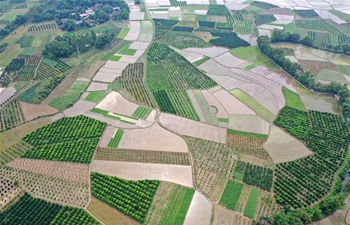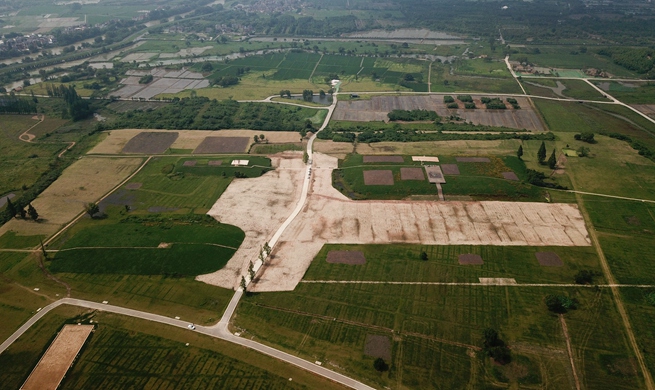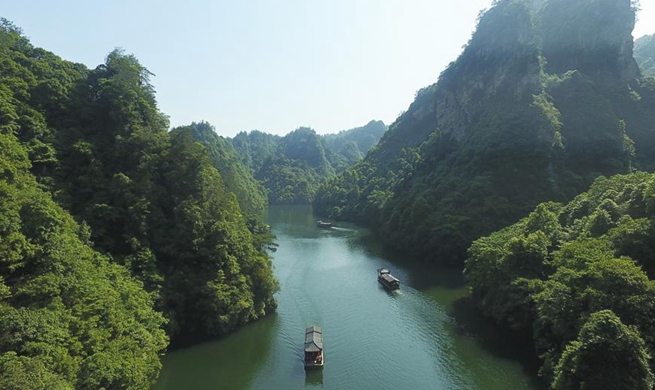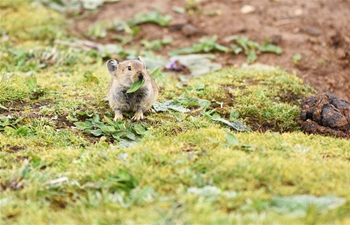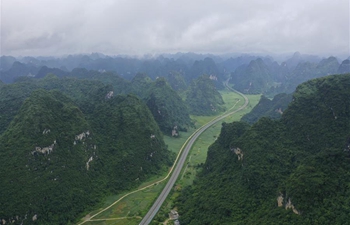NANYUKI, Kenya, July 8 (Xinhua) -- Kenya on Monday launched a comprehensive strategy to restore the population of mountain bongos amid risk of extinction linked to poaching, habitat loss, diseases and attack by large predators.
Najib Balala, cabinet secretary for tourism and wildlife, said the national recovery and action plan for the mountain bongo covering 2019 to 2023 will guide protection of an iconic species that inhabit Kenya's major water towers.
"The implementation of this plan will be a defining moment in the conservation of the mountain bongo subspecies that is only found in Kenya," said Balala.
"It will ensure that population of mountain bongo thrive in the mountain ecosystems spread across this country," he added.
He said that Kenya aims to raise the population of mountain bongo in the wild from the current 100 to 730 in the next 50 years through enhanced surveillance and community led conservation.
Kenya's ministry of tourism and wildlife has partnered with conservation lobby, Mountain Kenya Wildlife Conservancy, to implement the four-year strategy to restore the population of mountain bongo through breeding and enhanced protection of their habitat.
Susan Koech, principal secretary in the state department of wildlife, said the government will leverage on progressive legislation, scientific research and partnerships to restore the population of mountain bongo that are found in Mount Kenya, Aberdares, Mau and Eburu water towers.
"Implementation of mountain bongo recovery strategy focus on security enforcement, use of science to breed additional herd and engagement of local communities to protect their habitat," said Koech.
The mountain bongo whose population in Kenya stood at 500 in the 1970s have been described as critically engendered by the International Union for Conservation of Nature (IUCN).
Margaret Mbaka, a trustee of Mount Kenya Wildlife Conservancy, said that conserving mountain bongo will have positive impact on tourism and rural livelihoods.
"The mountain bongo is part of our heritage and there is need to promote conservation of their habitat whose contribution to our biodiversity, food security and economic growth is huge," said Mbaka.
She said that success of the mountain bongo restoration program hinges on innovative funding towards conservation programs combined with research and public awareness.

